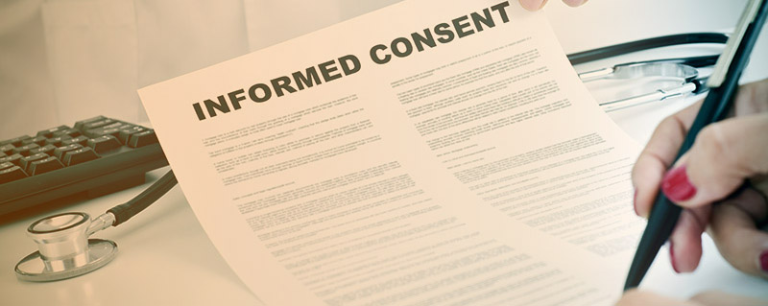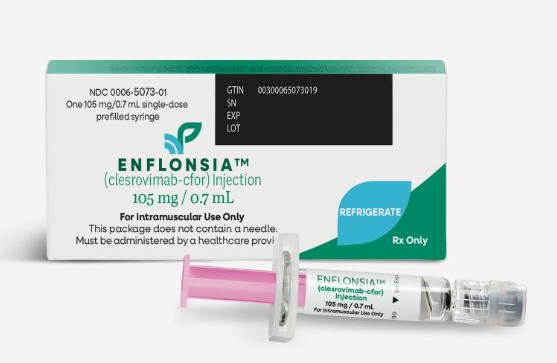The U.S. Food and Drug Administration (FDA) has issued a final rule that authorizes some experimental human clinical trials to operate without first obtaining informed consent from participants. The new rule, which took effect on Jan. 22, 2024, allows clinical investigations that pose no more than a “minimal risk” and have appropriate safeguards to protect the rights, safety and welfare of its human subjects to be exempt from the requirement to obtain prior informed consent from them.1
Informed consent can only be withheld from human participants in clinical trials that pose no more than a minimal risk. The FDA defines minimal risk as…
… means that the probability and magnitude of harm or discomfort anticipated in the research are not greater in and of themselves than those ordinarily encountered in daily life or during the performance of routine physical or psychological examinations or tests.2
Robert Califf, MD, commissioner of the FDA, wrote:
We anticipate this new rule will enable minimal risk research that would not be practicable to conduct otherwise, This could include studies comparing the effectiveness of approved products to determine which option works best for certain patients.
The rule change was originally proposed in November 2018 and, while the majority of the 50 public comments were in support of the rule change, the new rule was not implemented until December 2023.3
Informed Consent is a Human Right
In 1947, the Doctors’ Trial at Nuremberg in Germany after World War II defined the ethical principle of informed consent as a human right for individuals participating in scientific research. Informed consent guarantees that one has the legal right to be fully informed about the benefits and risks of medical intervention and the right to make a voluntary decision about whether or not to take those risks without being coerced or punished for the decision made.4
Dr. Califf wrote about the new rule:
These efforts will promote additional robust clinical research to generate the evidence needed to inform clinical decision making and ultimately enhance treatment and diagnostic options for patients.
The potential additional clinical research that could lead to enhanced treatment and diagnostic options for patients globally comes at the expense of the basic human right for the individual to exercise informed consent.
Barbara Loe Fisher, co-founder and president of the National Vaccine Information Center, has stated:
Utilitarianism was discredited as a pseudo-ethic in 1947 at the Doctors Trial at Nuremberg after World War II. The horrifying truth about what can happen when utilitarianism is used to create public health law was exposed for the whole world to see and gave birth to the informed consent principle articulated in the historic Nuremberg Code. The next year, basic human rights that include autonomy and freedom of thought, conscience and religious belief were affirmed in the Universal Declaration of Human Rights.5
If you would like to receive an e-mail notice of the most recent articles published in The Vaccine Reaction each week, click here.
Click here to view References:2 U.S. Food and Drug Administration. Minimal Risk. Aug. 6, 2014.
3 Dahnke A. FDA’s New Rule Allows for Medical Research Without Informed Consent. The Epoch Times Jan. 23, 2024.
4 Fisher BL. Why Is Informed Consent to Vaccination A Human Right? NVIC Vaccine News June 28, 2017.
5 Mercola J. Does Informed Consent Truly Exist? The Vaccine Reaction. Apr. 13, 2024.













18 Responses
It might seem minimal now but, mighty oaks from tiny acorns grow! How much will this convenience ruling expand in 20 years? Give a little here and give a little there and, soon Informed Consent will be an unknown right!
The FDA and CDC…enemies of all humanity.
Agree 100%!!!!
Who decides that the drug poses ‘minimal risk’? The drug companies doing the clinical trials? “Trust us, it’s safe and effective”. Hard pass.
EXACTLY!!!
Medical freedom has been greatly compromised since pandemic hits. I fear it’s going to get worse if no one would intervene and prevent from it. So for that reason I donate Robert F. Kennedy Jr’s campaign whenever possible. He’s my only hope, and I plan to vote for him!!! By the way, I did NOT vote for Biden as a president. I followed my guts when I knew something wasn’t right about his debate.
Informed consent, especially with human subject experimental drugs, should always be adequately explained to a patient, and in writing.
It seems as though Russia is gaining freedoms and returning to being a Christian nation bit by bit and the USA is being swallowed whole by the atheistic communism that Russia is leaving behind.
The reference number 5 is from 2017, not 2024.
We have known for decades that the FDA, CDC, NIH and other government agencies purported to be responsible for the public health of the US citizens are corrupt, fraudulent and driven by $$$$. Why would we think this next move is any different. After the COV!D debacle – unless you’ve been sleeping – we must know they cannot ever be trusted.
I, for one, do not trust the FDA or CDC to determine if a drug or vaccine is safe and effective for me to take. Having been seriously injured by the Pfizer mRNA covid vaccine that has left me with life altering chronic illness, these agencies have already failed to protect my health. If I had been given true informed consent for this “harmless” vaccine, I would still he healthy. Informed consent needs to be given for any clinical trial. It is an individual’s right. I would not trust the FDA or CDC to decide for me.
I’m so sorry you got injured by mRNA Covid vaccine, although I’m not surprised. There are a lot of vaccine injuries out there sadly. I don’t trust FDA or CDC, either. Here’s a suggestion: check http://www.React19.org. I’m praying and asking God to heal vaccine injuries including you. CDC and FDA must be held accountable.
Yup, lucifer’s pharma’s FDA.
WHAT triggered the “awaiting moderation?? Censoring here??
Minimal risk? Who gets to decide what that even is? Any adverse reaction except death? So fed up with this
A door that opens slightly with ill intent will only be opened wider and wider.
Why do I keep hearing whispers of ‘Revolution’? Is that the only way to clean up our corrupt institutions and companies?
This is downright creepy. Taking license to do medical experimenting on the general public, without our knowledge or consent. Absolutely not ok. And also, I don’t see any very specific provisions for oversight or accountability.
No way is this appropriate, safe, or necessary.